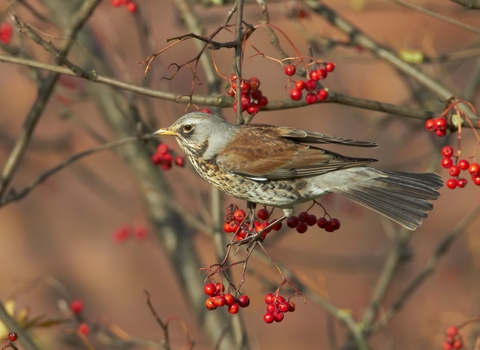
©Mark Hamblin/2020VISION

©northeastwildlife.co.uk

Fieldfare with Rowan berries ©Richard Steel/2020VISION
Rowan
Often a lone figure on a windswept mountainside or heath, the Rowan tree can stand for up to 200 years. It is well known for its masses of red berries that attract all kinds of birds, including thrushes.
Scientific name
Sorbus aucupariaWhen to see
January to DecemberSpecies information
Category
Statistics
Height: 8-15mCommon.
About
Rowan is a small tree found on mountains and heathland, and along woodland edges; it is also frequently planted in towns and gardens. It is slender tree, with creamy-white, spring flowers and clusters of bright red, autumn berries - a favourite food of birds, such as visiting Waxwings, Redwings and other thrushes.By eating the berries, these birds help the tree to disperse its seeds.
